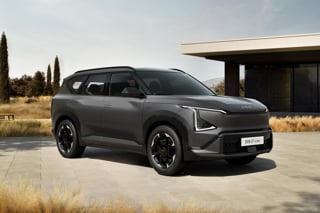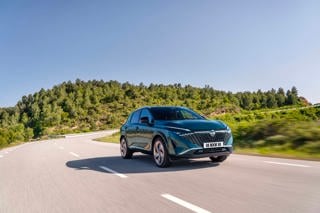The Government has revealed there will two plug-in grant rates from March 1, 2016, both lower than the £5,000 currently available.
Vehicles with a zero emission range of more than 70 miles – category one – will benefit from a grant of £4,500, while vehicles with a shorter zero emission range — category two and three such as plug-in hybrid vehicles with a petrol or diesel engine — will receive £2,500.
Previously, plug-in car applicants could receive up to £5,000 of a plug-in car.
The new banding system was introduced earlier this year to help prioritise grants once 50,000 have been claimed.
Category 1: CO2 emissions of less than 50g/km and a zero emission range of at least 70 miles.
Category 2: CO2 emissions of less than 50g/km and a zero emission range between 10 and 69 miles.
Category 3: CO2 emissions of 50-75g/km and a zero emission range of at least 20 miles.
A price cap will also be introduced from March 1, 2016. Category two and three models with a list price of over £60,000 will not be eligible for the grant, but all category one vehicles with a zero emission range of more than 70 miles will be eligible for the full £4,500 grant.
Fleet News reported that thanks to a £400 million package, the grant will continue until at least the end of March, 2018, and will mean more than 100,000 people will benefit — double the number who have already claimed the grant since 2011.
Transport Minister Andrew Jones said: “The UK is a world leader in the uptake of low emission vehicles and the plug-in car grant has been key to that success.
“Extending the grant in a sustainable way ensures more than 100,000 people will benefit from financial support when purchasing these cheap-to-run and green cars.
“We are determined to keep Britain at the forefront of the technology, increasing our support for plug-in vehicles to £600 million over the next five years to cut emissions, create jobs and support our cutting-edge industries.”
The grant was created in 2011 to encourage sales of ultra-low emission vehicles (ULEVs) and has been instrumental in the UK becoming the biggest ULEV market in the EU, and the fourth largest in the world. Some 50,000 people have already benefited from the grant.
Jim Wright, Nissan GB managing director, said: “Today’s decision by Government has reaffirmed their commitment to the uptake of ultra-low emission vehicles.
“With government support and Nissan’s investment of over £420 million into electric vehicles in the UK, our British made Nissan Leaf has increased in popularity with many UK customers already enjoying the benefits of zero emission and low cost driving.
“This announcement, together with ongoing infrastructure developments, should see the growth and wider deployment of this technology continue.”
Renault has also welcomed the announcement. Ken Ramirez, managing director of Renault UK, said: “Differentiating ultra low emission vehicles into three categories, and placing a clear £2,000 financial benefit for choosing the most environmentally friendly category one vehicles over the other two categories, is recognition that the UK sees a strong future in zero tailpipe emission vehicles and the air quality benefits they offer.”
The new grant levels reflect strong growth in the sector with sales of ULEVs doubling over the past year. Motorists also have a wider choice of 29 ULEVs on the market — five times as many as when the plug-in car grant was launched. Hydrogen fuel cell vehicles will also be eligible for the £4,500 grant thanks to their zero tailpipe emissions.
The Government has also announced today it will continue to provide a grant to help ULEV owners have a dedicated charge point installed at their home. From March 1, 2016, the electric vehicle homecharge scheme (EVHS) will offer £500 per installation, which on average will cover around half of the cost of getting a charge point.
However, that is a reduction on the £700 that is currently available. David Martell, CEO of Chargemaster, said: “Reducing support for electric car owners to install a charger at home is premature and a step backwards for UK carbon reduction and the necessary push towards air quality improvement.
"It means that many plug in hybrid vehicle drivers will simply not bother fitting a charger at home and run their cars on fossil fuel instead. To get the full benefit of owning an EV, a homecharger is vital.”
The plug-in van grant, which offers up to £8,000 of a ultra-low emission van, remains unchanged.




















Login to comment
Comments
No comments have been made yet.